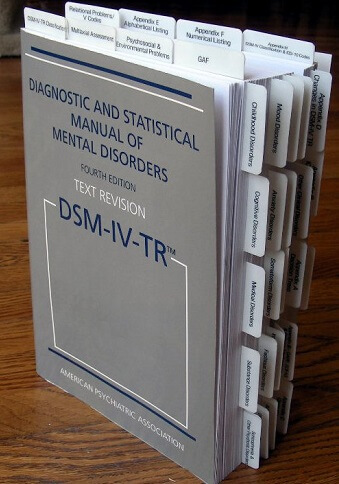Diagnostic Criteria and Psychiatric Ethics
Abstract: If someone browse the Diagnostic and Statistical Manuals of Mental Disorders (DSM) over the years will conclude that our tolerance to what we are considering healthy is eventually decreasing. This discussion is about behavior related mental disorders that we evaluate as undesirable and therefore unhealthy.
Two important areas that can be criticized on the validity of the diagnostic manuals, and the ethical responsibilities that are connected on them are:
[A] disputes and major problems related to social, cultural or religious beliefs and different ethical principles adopted by different societies.
[B] the problem of language but mainly an important conceptual confusion between "Criteria" and "Symptoms".
Wittgenstein pointed out and emphasized the difference between criteria and symptoms. In most cases, the only criteria of mental disorders diagnosis are the symptoms themselves. This creates a serious issue for the reliability of the criteria compared to other fields of medical science. In general, medical diagnoses, are based in key criteria to determine for example an existence of a virus, or a malformation, a fracture, a stroke, an anemia, etc. But in the case of so-called "mental disorders, the criteria of diagnosis are only the symptoms, that means the symptomatic behavior.
As human beings we use to construct and explain concepts, disorders, illnesses and normality, because we believe in what we observe and in what we consider as average. Then, we think that the constructed terms or, in this case, the disorders are existing in reality. We believe in the reality of concepts because, as Nietzsche says, we believe in logic.
The concept of mental health (ie the evaluation of what is healthy and what is not), has maintains a "real" world of 'psy' professions and “professionals”, pharmaceutical industries, clinics, laws, institutions, patients, etc. Questioning about diagnostic criteria and also about the very concept of mental disorder, raises a series of ethical issues related to the non-consensual hospitalization, the involuntary commitment, the forced treatment or the right to deny treatment, the dilemma of choosing therapist, the psychiatric confidentiality, the legal attribution of responsibility issue, etc.
Keywords: Psychiatric ethics, diagnostic manuals, mental health, Wittgenstein, Szasz, Foucault
Gounaris, Α. (2008). Diagnostic Criteria and Psychiatry Ethics. Psychanemismata, Journal of the Greek Society for Phenomenological-Existential Psychotherapy and Daseinanalysis. v.4. pp.61-65. Retrieved February 5th, 2019 from https://alkisgounaris.gr/en/archives/diagnostic-criteria-and-psychiatry-ethics/
Full Text in Greek -->
Read full text in Greek


